Introduction Korean Grammar ‘-을 것 같아요’
Learning Korean grammar can be challenging, but breaking it down into manageable lessons can make it easier. Today, we will explore the grammar pattern ‘-을 것 같아요,’ which is used to express assumptions, predictions, or guesses in Korean. This lesson will help you understand and use this form effectively.
Learn Korean with JAEM : Improve your Korean with our app through free lessons and courses. And also, Join our 4-week challenge program to progress from upper-beginner to master level with Native Korean Coaches.
Our Book: Don’t miss out on our comprehensive book that covers essential Korean language skills and strategies.
AI Writing Practice Program: Enhance your writing skills with JAEM TOPIK, our AI-powered practice program. Get personalized feedback and TOPIK tips to elevate your Korean writing.
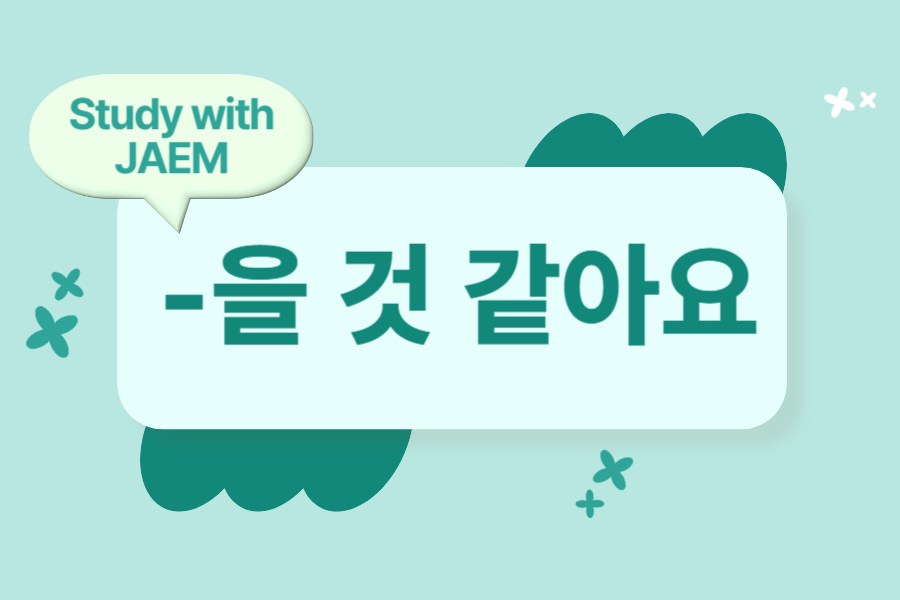
Jump to:
Grammar Explanation ‘-을 것 같아요’
The grammar pattern ‘-을 것 같아요’ is used to express assumptions, predictions, or guesses about something that is likely to happen. It translates to “I think,” “It seems like,” or “It looks like” in English. The ending depends on the tense and the verb stem.
Formation:
- For verb stems ending in a consonant, add ‘-을 것 같아요.’
- For verb stems ending in a vowel, add ‘-ㄹ 것 같아요.’
- For past tense, add ‘-았/었을 것 같아요.’
- For present tense, use ‘-는 것 같아요.’
| Verb/Adjective | Stem | Form | Example Sentence |
|---|---|---|---|
| 가다 (to go) | 가 | 갈 것 같아요 | 학교에 갈 것 같아요 (I think I will go to school) |
| 먹다 (to eat) | 먹 | 먹을 것 같아요 | 밥을 먹을 것 같아요 (I think I will eat a meal) |
| 하다 (to do) | 하 | 할 것 같아요 | 숙제를 할 것 같아요 (I think I will do my homework) |
| 예쁘다 (pretty) | 예쁘 | 예쁠 것 같아요 | 그녀가 예쁠 것 같아요 (I think she is pretty) |
Examples
Future Tense Examples:
- 보다 (to see)
- 볼 것 같아요 = Will see
- 영화를 볼 것 같아요 = I think I will watch a movie.
- 살다 (to live)
- 살 것 같아요 = Will live
- 서울에서 살 것 같아요 = I think I will live in Seoul.
- 읽다 (to read)
- 읽을 것 같아요 = Will read
- 책을 읽을 것 같아요 = I think I will read a book.
- 마시다 (to drink)
- 마실 것 같아요 = Will drink
- 물을 마실 것 같아요 = I think I will drink water.
Present Tense Examples:
- 하다 (to do)
- 하는 것 같아요 = Is doing
- 그는 숙제를 하는 것 같아요 = I think he is doing his homework.
- 가다 (to go)
- 가는 것 같아요 = Is going
- 그녀는 학교에 가는 것 같아요 = I think she is going to school.
Past Tense Examples:
- 먹다 (to eat)
- 먹은 것 같아요 = Ate
- 그는 밥을 먹은 것 같아요 = I think he ate a meal.
- 보다 (to see)
- 본 것 같아요 = Saw
- 그는 영화를 본 것 같아요 = I think he watched a movie.
Adjective Examples:
- 크다 (big)
- 클 것 같아요 = Will be big
- 그 집은 클 것 같아요 = I think that house will be big.
- 작다 (small)
- 작을 것 같아요 = Will be small
- 고양이가 작을 것 같아요 = I think the cat will be small.
- 좋다 (good)
- 좋을 것 같아요 = Will be good
- 날씨가 좋을 것 같아요 = I think the weather will be good.
- 나쁘다 (bad)
- 나쁠 것 같아요 = Will be bad
- 기분이 나쁠 것 같아요 = I think I will feel bad.
Usage in Context
When using ‘-을 것 같아요’ in different contexts, it emphasizes assumptions, predictions, or guesses.
Expressing Assumptions:
- 그는 오늘 바쁠 것 같아요 = I think he will be busy today.
- 이 음식은 맛있을 것 같아요 = I think this food will be delicious.
Making Predictions:
- 내일 비가 올 것 같아요 = I think it will rain tomorrow.
- 우리는 이길 것 같아요 = I think we will win.
Guessing:
- 그녀는 지금 집에 있을 것 같아요 = I think she is at home now.
- 그는 아마 자고 있을 것 같아요 = I think he is probably sleeping.
Cultural Insight: In Korean culture, making assumptions or predictions using ‘-을 것 같아요’ shows politeness and humility, as it indicates that the speaker is not making a definitive statement but rather a thoughtful guess.
Common Mistakes
Common Mistakes:
- Incorrect: 좋겠어요 (Wrong tense and form)
- Correct: 좋을 것 같아요 = I think it will be good.
Mistake Explanation: Ensure that the correct form ‘-을 것 같아요’ or ‘-ㄹ 것 같아요’ is used based on the verb stem and tense.
Related Grammar Points
Explore these related grammar points to deepen your understanding:
- -ㄹ 것 같다: To express likelihood or assumption.
- -ㄴ/은 것 같다: To express assumption in the past tense.
- -나 보다: To express an assumption based on evidence.
- -일 것이다: To express a strong assumption or prediction.
Practice Exercises
Practice Makes Perfect!
- Exercise 1: Conjugate the following verbs using ‘-을 것 같아요.’
- 가다 (to go)
- 먹다 (to eat)
- 하다 (to do)
- 보다 (to see)
Answer Key:
- 갈 것 같아요
- 먹을 것 같아요
- 할 것 같아요
- 볼 것 같아요
- Exercise 2: Create sentences using ‘-을 것 같아요’ for the following situations:
- I think I will watch a movie.
- She will live in Busan.
- They will read a book.
- We will drink coffee.
Answer Key:
- 영화를 볼 것 같아요.
- 그녀는 부산에서 살 것 같아요.
- 그들은 책을 읽을 것 같아요.
- 우리는 커피를 마실 것 같아요.
Summary and Conclusion
Today, we covered the grammar point ‘-을 것 같아요’ and how to use it to express assumptions, predictions, or guesses in Korean. This pattern is essential for conveying thoughtful guesses and polite assumptions about future events. Continue practicing with our workbook and check out related lessons for more in-depth learning.
If you have any questions or suggestions, feel free to comment below. Happy learning!
Learn Real Korean with JAEM!
Learn Korean with JAEM Korean App & 4-week Challenge: Discover the best way to learn real Korean with our comprehensive app. Enjoy a wide variety of free lessons and courses designed to help you master the language. Also, our unique 4-week challenge program guides you from an upper-beginner level to a master course, all under the guidance of Native Korean Coaches. Whether you’re just starting out or looking to refine your skills, this program offers an effective path to fluency.
AI Korean Writing Practice Program: Take your Korean writing to the next level with JAEM TOPIK, our innovative AI writing practice program. This service provides personalized feedback and practical tips tailored to your learning needs. With a focus on improving your Korean writing, JAEM TOPIK also offers specific strategies for excelling in the TOPIK exam. Benefit from expert insights and targeted advice to enhance your proficiency and confidence in writing.
Our Book: Additionally, explore our comprehensive book that covers essential Korean language skills and strategies. This valuable resource complements our app and AI program, providing a holistic approach to mastering Korean.
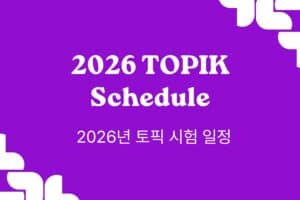
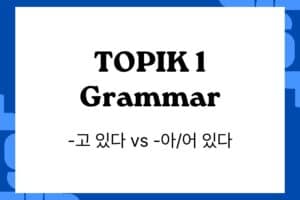
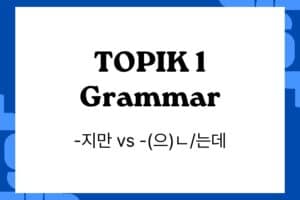
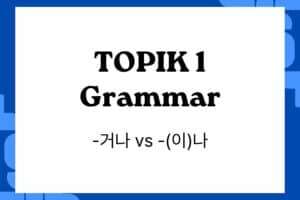
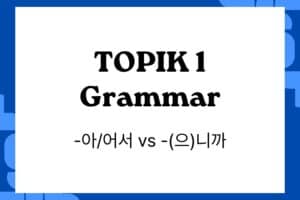
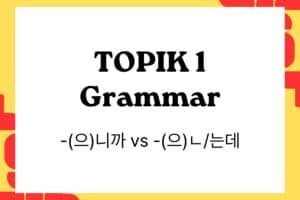
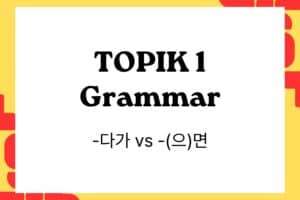
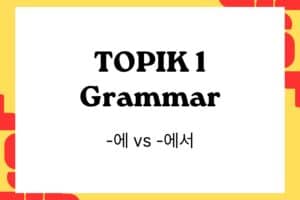
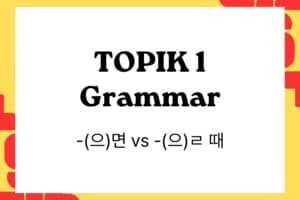
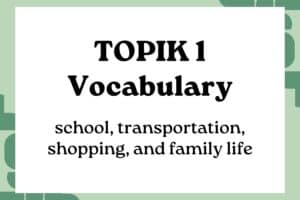
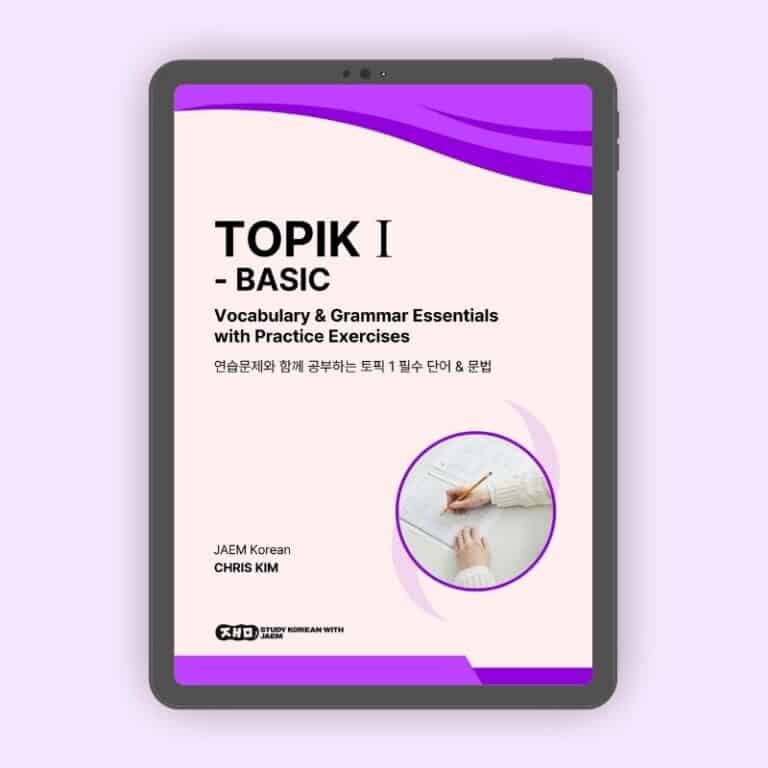
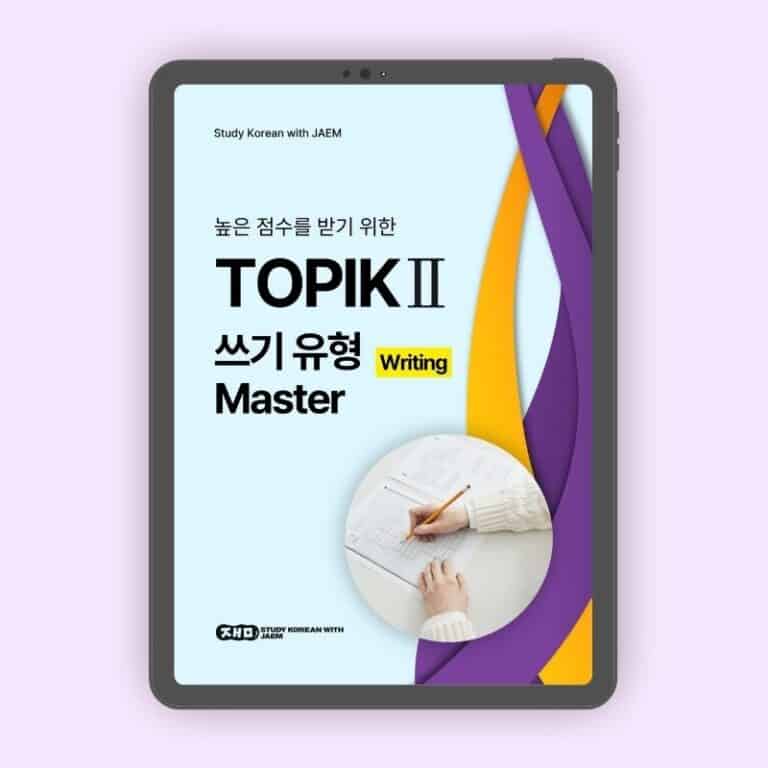
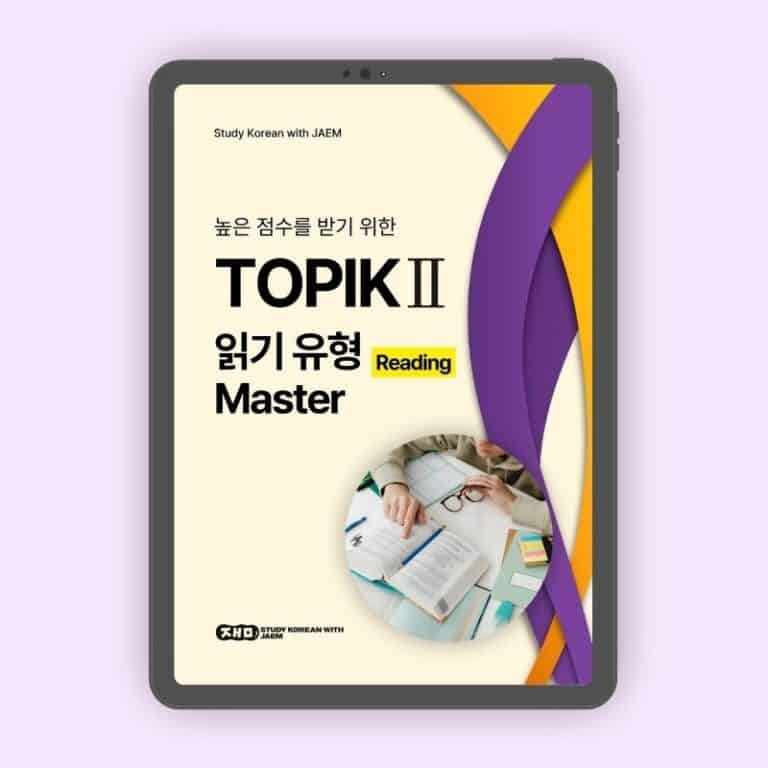

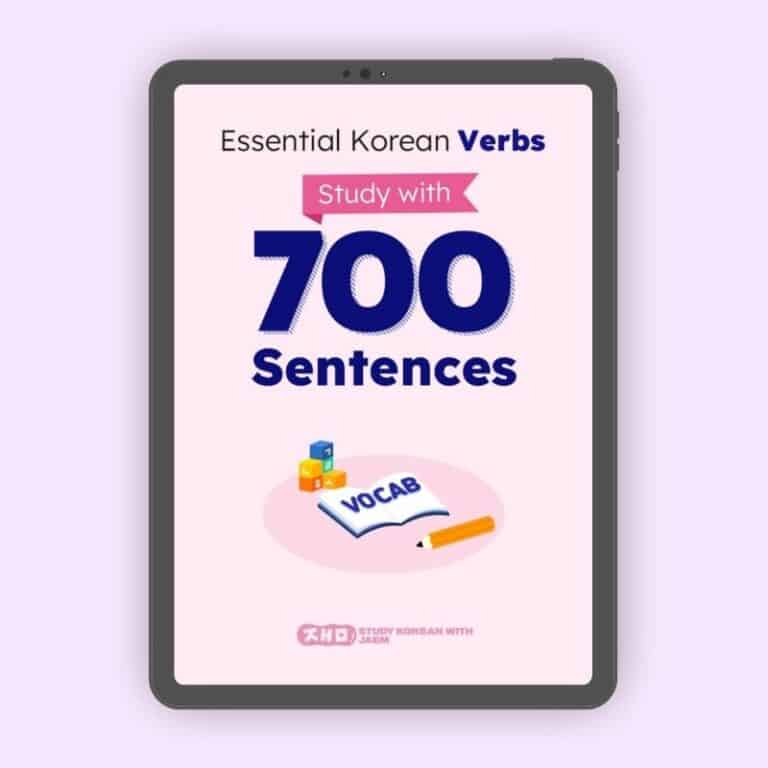
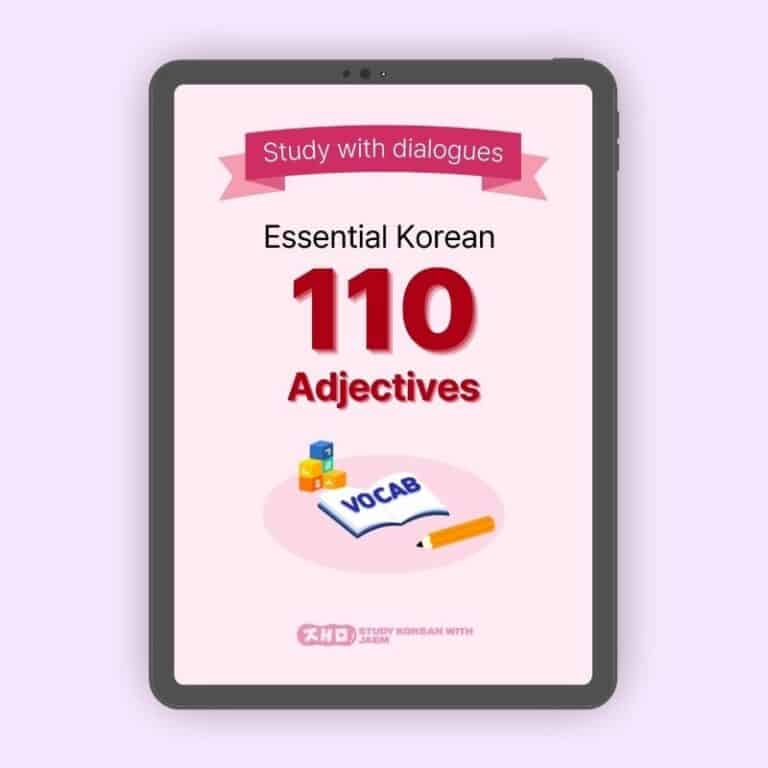
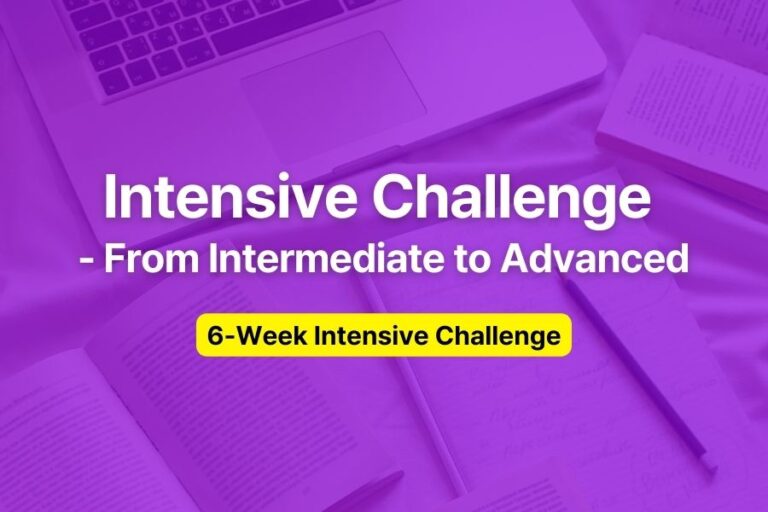
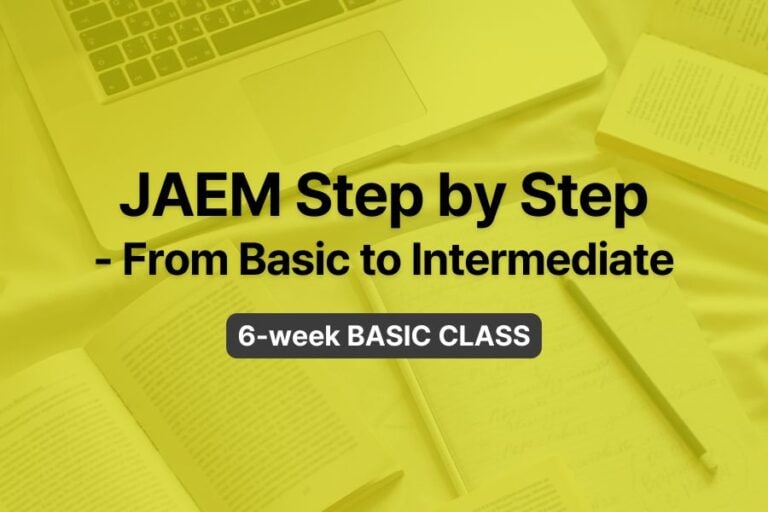
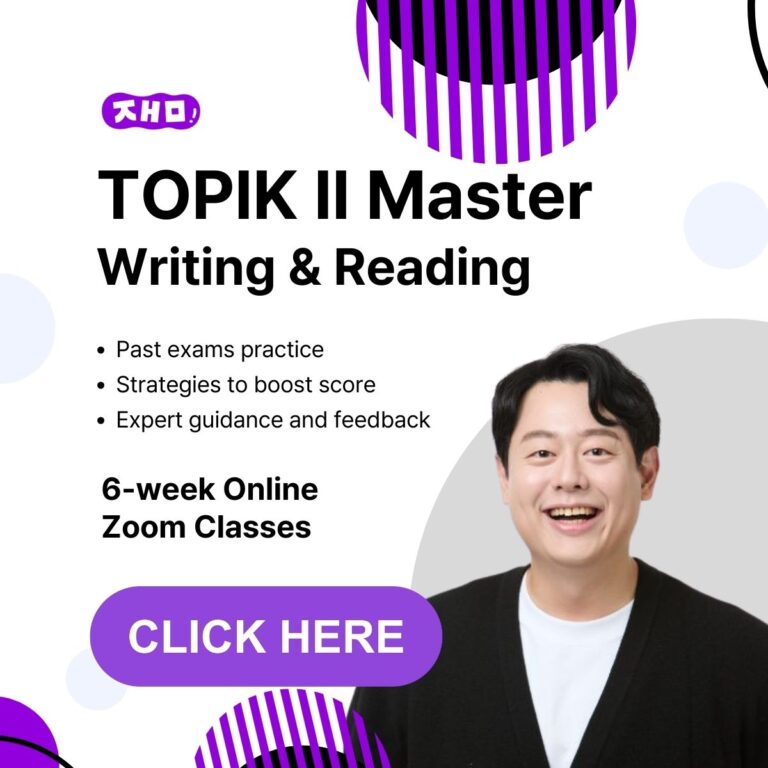
Responses